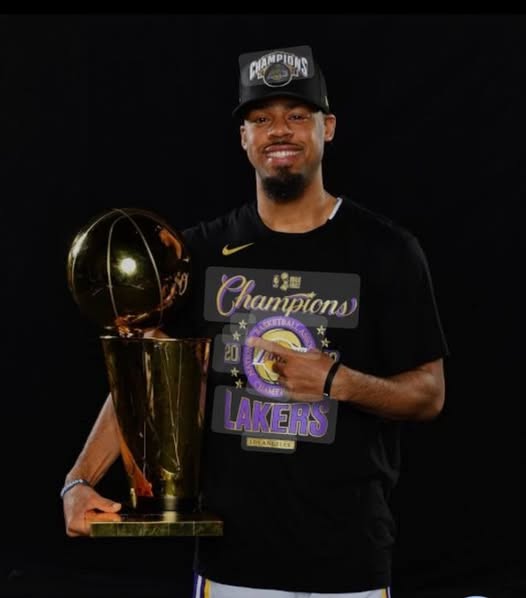He Nearly Quit Duke… Then Became the Heart of a Championship: The Grit Behind Shane Battier’s Legacy
He was never the most athletic. He didn’t talk trash. He didn’t fill up highlight reels or dominate the headlines. But when it mattered most—when championships were on the line, when the culture of a team needed grounding, when the game demanded toughness, intelligence, and leadership—Shane Battier was there. Quietly, consistently, and with a level of grit that became legendary.
Shane Battier’s journey from a homesick freshman on the brink of quitting Duke University to becoming the heartbeat of a national championship team is a story not just about basketball, but about character. It’s about the kind of legacy that doesn’t just live in stat sheets but in locker rooms, in the minds of teammates, and in the blueprint of what it means to win the right way.
Coming out of Detroit Country Day School in Michigan, Battier was heralded as a top recruit. He had the grades, the accolades, and the national attention. He was a McDonald’s All-American, the Gatorade National Player of the Year, and one of the most coveted high school players in the country. But when he arrived at Duke in 1997, he found himself in unfamiliar territory—not just in terms of geography, but in terms of identity. Duke basketball was already a pressure cooker, and Battier was entering a program with a high bar set by names like Christian Laettner, Grant Hill, and Bobby Hurley.
And for a while, it didn’t go well. Battier was homesick. He wasn’t getting the minutes he expected. He didn’t yet understand his place on the team, and the demands of the Duke system, both academically and athletically, were overwhelming. At one point during his freshman year, he seriously considered leaving. It was more than just a fleeting thought—he called his parents in tears, questioning whether he belonged.
But something kept him there.
It wasn’t a coach’s promise or a guaranteed starting spot. It was the voice inside Battier—the same voice that would define his entire career—that refused to let him walk away from the challenge. Instead of transferring or looking for an easier path, Battier leaned in. He doubled down on his effort, his focus, and his unselfishness. Slowly, he began to carve out a role not defined by scoring or flash, but by substance.
That transformation didn’t happen overnight. Battier spent his sophomore and junior years improving every aspect of his game. He became one of the nation’s top defenders, learning how to study opponents, anticipate plays, and master the art of positioning. He was never the fastest, strongest, or most explosive player on the court, but he outworked and out-thought nearly everyone. By his senior season in 2000-01, he was not just the captain of the team—he was its conscience.
That year, Duke faced adversity. They lost star point guard Jason Williams for stretches. They battled injuries and endured the usual scrutiny and pressure that comes with being a national powerhouse. But Battier anchored them. He was the glue, the steadying presence, the voice in the huddle that kept everyone aligned.
He averaged 19.9 points, 7.3 rebounds, and 2.1 blocks per game that season, but the numbers still didn’t tell the full story. Battier’s greatness was in the details—the charges he took, the deflections he caused, the way he rotated on defense to stop a drive that never showed up in a box score. He became a master of “winning plays,” the kinds of small, often unnoticed actions that separate good teams from champions.
Duke won the national championship in 2001, defeating Arizona in the title game. Battier was named the NCAA Final Four Most Outstanding Player. He also won the Naismith College Player of the Year, the John R. Wooden Award, and the AP National Player of the Year. In a sport that often celebrates individual dominance, Battier was celebrated for something different—complete team excellence.
But Battier’s story doesn’t end at Duke. His professional career in the NBA was a continuation of the same theme: selflessness, intelligence, and elite defense. Drafted sixth overall by the Memphis Grizzlies in 2001, he quickly became a cornerstone of their rebuild. He wasn’t flashy, but he made every team he played for better. Coaches trusted him. Teammates loved him. Opponents hated playing against him because he made everything hard.
In 2011, he joined the Miami Heat, a team filled with star power—LeBron James, Dwyane Wade, Chris Bosh—but needing role players with toughness and clarity of purpose. Battier fit perfectly. He wasn’t there to score 20 points a night. He was there to guard the opposing team’s best player, to hit open threes when needed, and to set the tone with his work ethic. He did all that and more.
In Game 7 of the 2013 NBA Finals against the San Antonio Spurs, with the title on the line, it wasn’t LeBron or Wade who hit the most three-pointers—it was Battier. He made six of them, going 6-of-8 from beyond the arc, in a performance that sealed his second NBA championship and epitomized everything he stood for: readiness, poise, and delivering when it mattered.
By the time he retired in 2014, Battier’s career had never been about personal glory. It was about impact. He finished with modest averages—8.6 points, 4.2 rebounds, 1.6 assists per game—but those who played with him, coached him, or watched closely knew the truth. He was a winner in the truest sense.
He also redefined what it meant to be a “role player.” That term often carries a connotation of limitation, but in Battier’s case, it meant something deeper. It meant understanding exactly what your team needs and delivering it consistently. It meant putting ego aside, playing with purpose, and elevating everyone around you.
Off the court, Battier brought the same intellectual rigor and humility. He was a scholar, a thinker, and a bridge-builder in every locker room. He once famously said he embraced the idea of being a “no-stats All-Star,” a term coined by Michael Lewis in an essay detailing Battier’s unquantifiable impact on team success. It was a badge of honor, a recognition that winning goes far beyond points and rebounds.
Even after basketball, Battier has continued to lead. He launched the Battier Take Charge Foundation, supporting underserved students with scholarships and leadership development. He’s also worked in executive roles in the NBA and remains a sought-after speaker and commentator.
Yet at the heart of it all is a simple, enduring truth: Shane Battier nearly walked away from it. At 18 years old, overwhelmed and unsure, he stood at a crossroads. He could have chosen comfort. Instead, he chose challenge. And in doing so, he not only changed the course of his own life—he left a legacy that continues to inspire athletes, coaches, and fans who understand that greatness isn’t always loud.
Sometimes, greatness looks like a dive on the floor for a loose ball. A charge taken. A defensive rotation executed with perfect timing. A three-pointer made in the biggest game of the year—not because the moment demanded a hero, but because someone had prepared for it every single day.
That’s the legacy of Shane Battier. Not just the heart of a championship, but the soul of what sports can be at their very best.



